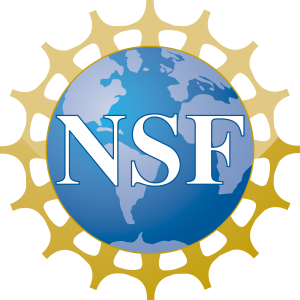 The National Science Foundation’s (NSF) new solicitation, titled National Artificial Intelligence (AI) Research Institutes: Accelerating Research, Transforming Society, and Growing the American Workforce, has a program webinar on November 7th, 2019 at 3:30-4:30 PM ET.
The National Science Foundation’s (NSF) new solicitation, titled National Artificial Intelligence (AI) Research Institutes: Accelerating Research, Transforming Society, and Growing the American Workforce, has a program webinar on November 7th, 2019 at 3:30-4:30 PM ET.Artificial Intelligence (AI) has advanced tremendously and today promises personalized healthcare; enhanced national security; improved transportation; and more effective education, to name just a few benefits. Increased computing power, the availability of large datasets and streaming data, and algorithmic advances in machine learning (ML) have made it possible for AI development to create new sectors of the economy and revitalize industries. Continued advancement, enabled by sustained federal investment and channeled toward issues of national importance, holds the potential for further economic impact and quality-of-life improvements. The 2019 update to the National Artificial Intelligence Research and Development Strategic Plan, informed by visioning activities in the scientific community as well as interaction with the public, identifies as its first strategic objective the need to make long-term investments in AI research in areas with the potential for long-term payoffs in AI.
The goal of this program is to enable multidisciplinary, multi-stakeholder research on large-scale, long-time-horizon challenges in areas of national importance, through a set of new AI Research Institutes. This webinar will introduce the program, describe funding opportunities for both planning grants and full institutes, and address questions about the program.
Grant proposals for the National AI Research Institutes program are due to NSF no later than Jan. 28, 2020, for Institute proposals and Jan. 30, 2020, for Planning grant proposals. See the NSF news release here and more information about the webinar here.
Earlier this year, the Computing Community Consortium (CCC) released its completed Artificial Intelligence (AI) Roadmap, titled A 20-Year Community Roadmap for AI Research in the US. An HTML version is available here. Slides summarizing the roadmap are available here. This roadmap, led by Yolanda Gil (University of Southern California and President of AAAI) and Bart Selman (Cornell University and President Elect of AAAI), is the result of a year-long effort by the CCC and over 100 members of the research community.









